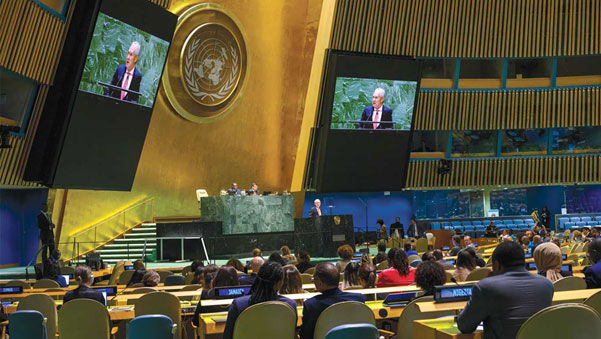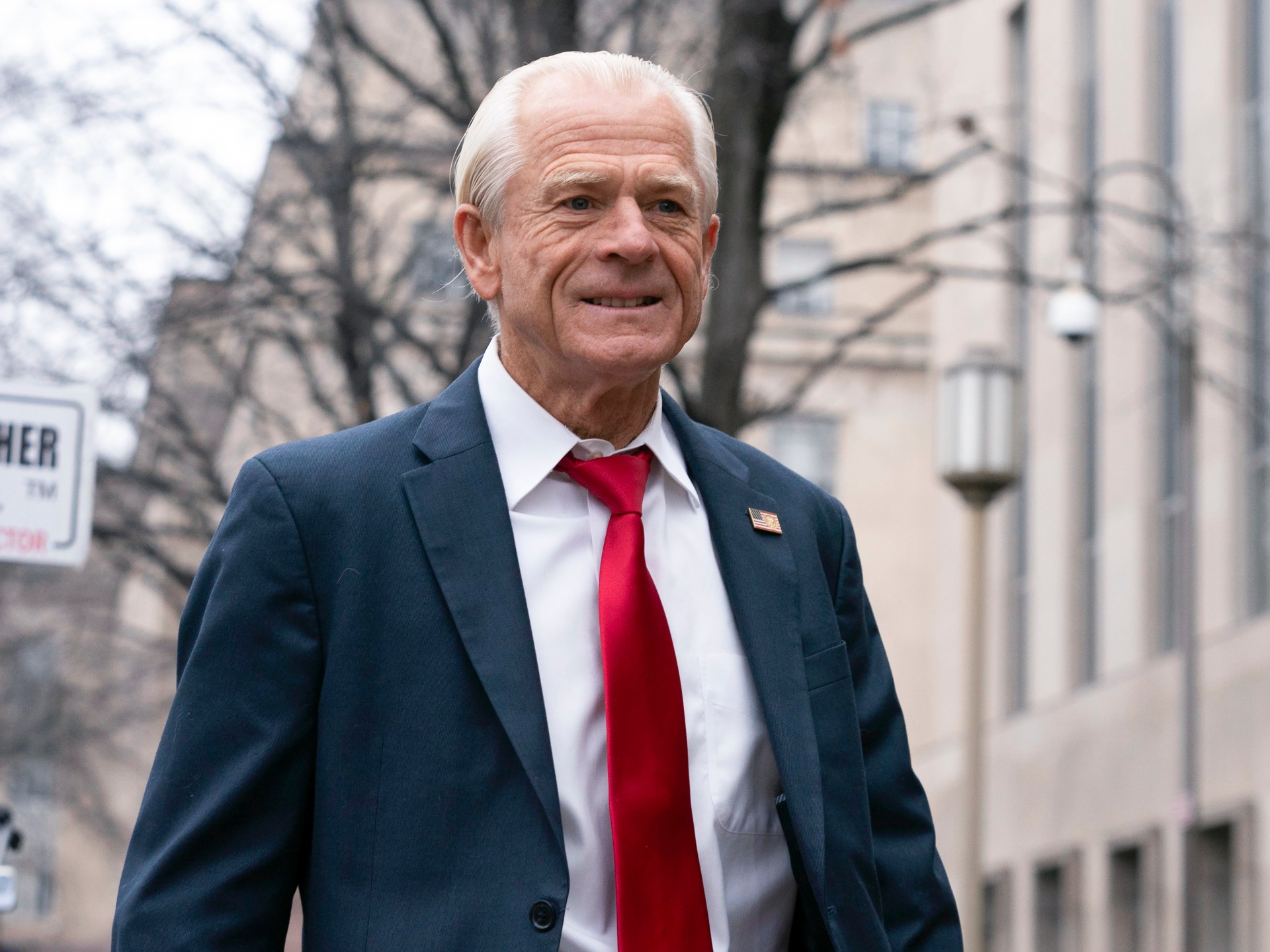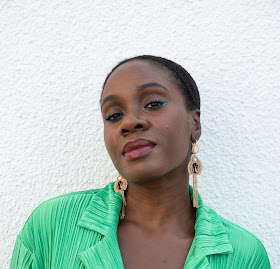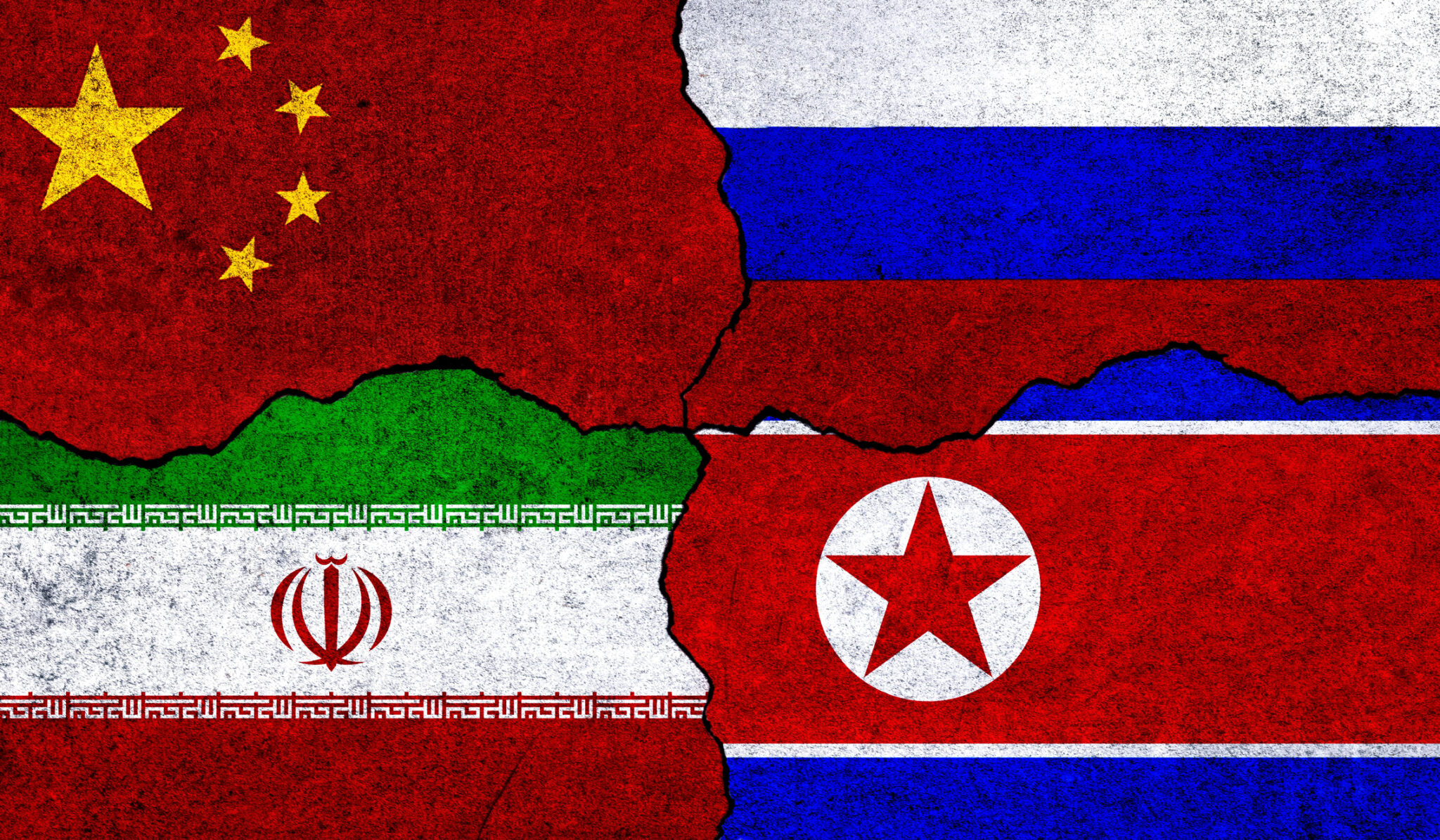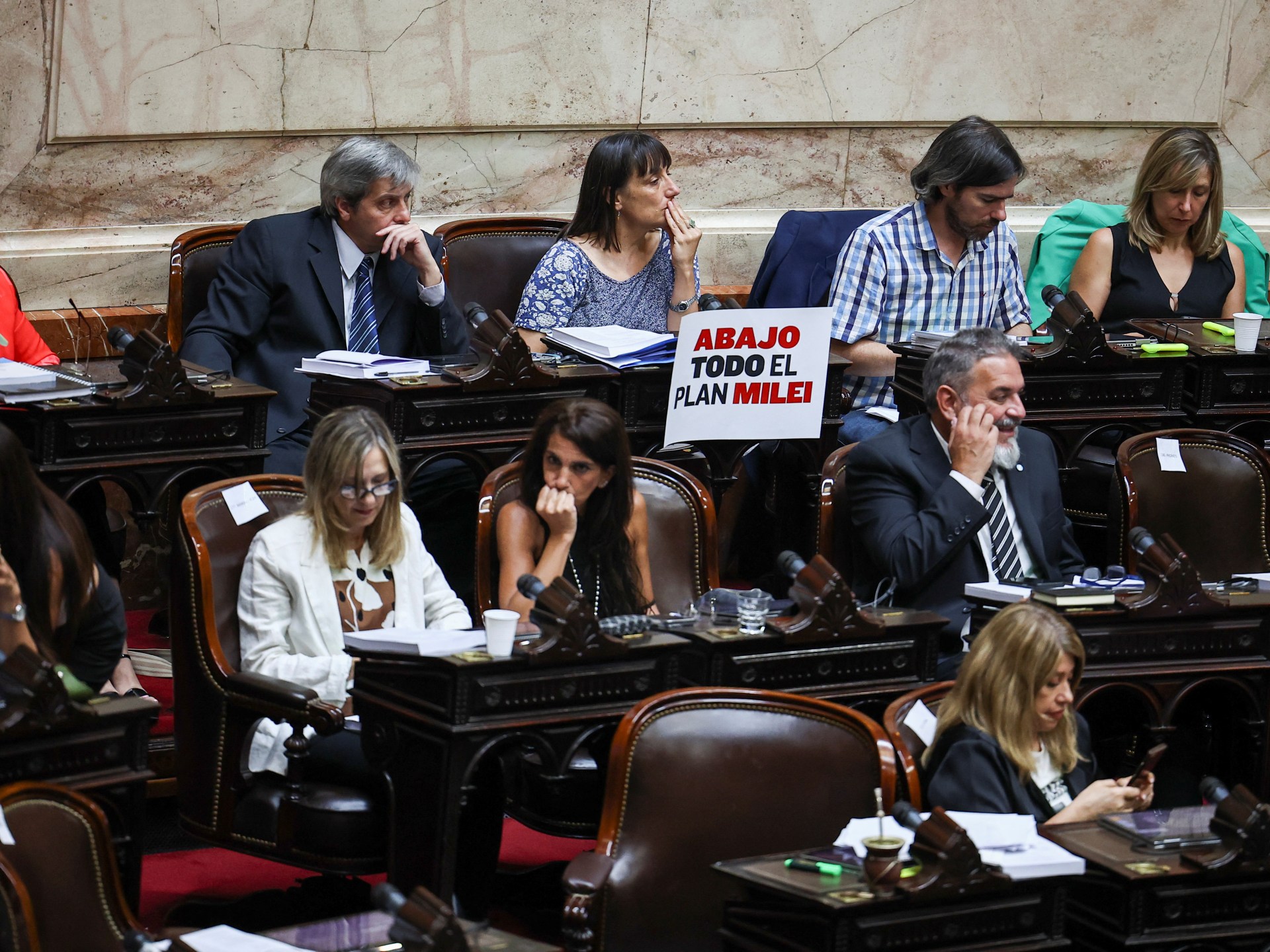Behind the Scenes of a General Assembly Session — Global Issues
UNITED NATIONS, Sep 4 2023 (IPS) – The 78th UN General Assembly (UNGA) session begins September 5. Below is an interview with the outgoing President of the 77th session, Csaba Kőrösi of Hungary.
Q: During a General Assembly session, there are many things an external observer doesn’t know about. What can you share about your behind-the-scenes experiences?
A: The General Assembly session starts with a “big bang” with the opening of the General Debate when Heads of State and Government meet at the Headquarters in New York for a marathon of meetings and discussions.
I think it might be surprising to learn that Member States are constantly in discussions and in negotiations. From the outside, it might seem that the General Assembly meets every few days for debates or to adopt a draft resolution, but in fact, ambassadors and diplomats are in meetings at the UN most days, formal and informal ones. There is always a buzz in the hallways, and many deals are decided outside the formal negotiations over coffee in the Delegates’ Lounge or the Vienna Café.
This session of the General Assembly has 181 agenda items. This means that the calendar is quite full. In addition, Member States take part in additional 16 so-called mandated processes during the session. What that “UN term” refers to is that there are 16 negotiations on important conferences or political declarations that UN Members discuss in parallel to the regular issues.
For example, this year, the first mandated process that was completed was about identifying the theme for the Economic and Social Council (ECOSOC) and the High-level Political Forum (HLPF) for its session in 2024, and the set of Sustainable Development Goals to be reviewed at the HLPF in 2024.
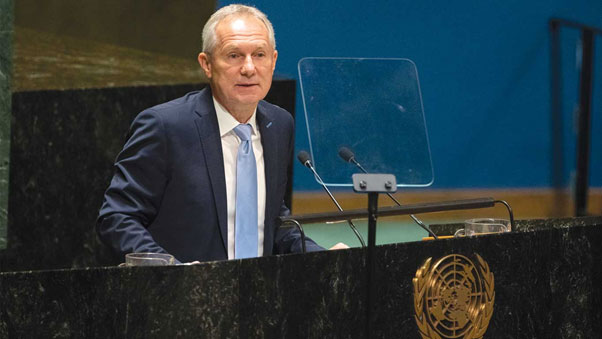
The most recent process that was completed for the 77th session was the Intergovernmental Negotiations on Security Council Reform, where Member States agreed that the process would continue during the 78th session.
That process was led by Mr. Tareq M. A. M. Albanai, the Permanent Representative of the State of Kuwait, and Mr. Alexander Marschik, the Permanent Representative of Austria, who managed to get some agreements from Member States on the way forward to make the process more transparent and hopefully reach a substantive agreement in the future.
But to get to such an agreement, it takes a lot of negotiations with Member States, civil society organizations, the private sector, academia, and others, so that these processes are completed only after very extensive and thorough discussions.
In addition, I convened informal meetings on Friday mornings, where a small group of ambassadors would come together off the record and discuss tricky topics such as how to improve human rights situations on the ground.
So far, it might seem that all that occurs is talking, but there is so much more to work in the General Assembly. Talking is important, especially if those conversations are aimed at finding solutions that are based on solidarity, sustainability and science – my motto for the 77th session. Solutions that have a tangible impact for the people outside of the UN – for the 8 billion people whom we represent in here.
Q: The General Assembly is seen as the legislative arm of the UN with no execution authority. How do you think it could be made stronger?
A: The General Assembly is unique in that it is the chief deliberative, policy-making and representative organ of the United Nations. It is comprised of all 193 Member States and each Member State has an equal vote.
General Assembly resolutions represent the point of view of the majority of Member States, from which the General Assembly has mandated peacekeeping operations, fact-finding missions and humanitarian assistance in the past.
Under the “Uniting for Peace” resolution of 1950, the General Assembly may consider any matter related to peace and security, when the Security Council has failed to act owing to the veto of a permanent member – with some exceptions, of course.
But we see how this works in the case of the ongoing war in Ukraine. Since March 2022, the General Assembly has adopted six resolutions related to the war with a great majority; the Security Council none. This shows that the international community has a strong opinion about what should be done – and that is to put
an end to the violence in line with the UN Charter and international law.
We should aim to make the General Assembly relevant and stronger for 2023 and the future. How do we do this? Well, one of the 16 processes that we spoke about at the beginning is about the revitalization of the work of the General Assembly. The process is now completed for the session, successfully led by Mr. Mitch Fifield, the outgoing Permanent Representative of Australia, and Ms. Egriselda Aracely González López, the Permanent Representative of El Salvador.
The outcome is a draft resolution that – I hope – will be approved soon. The recommendations are wide reaching, ranging from working methods of the General Assembly, to the need to support gender representation.
Q: Why do you think the High-level segment of the General Assembly session is so important?
A: There are two things that stand out to me from my own experience as President of the General Assembly during the High-level segment in September 2023:
One is the eagerness with which world leaders resumed their in-person interaction at the Headquarters following years of the pandemic. They were enthusiastic to be back at UNGA in person, to speak at the General Assembly, to meet face to face. That enthusiasm underscores the importance of the United Nations as a platform for international diplomacy and multilateralism.
The UN is the most important international body with convening power to bring people together. Especially during a time of multiple crises, this institution is seen as more important than ever.
The second observation that I made was that while the United Nations is seen as more important than ever – it is also seen as needing reform. During global crises discussions, the need to revitalize the United Nations was the most prominent theme from the more than 190 formal speeches in the debate. In today’s world, any organization must adapt to changing conditions to stay relevant – the United Nations is no different.
I would imagine that this coming High-level segment of the General Assembly will be no different. I expect it will be well attended and there will be a large number of bilateral meetings, as world leaders seek to speak
with one another and discuss solutions.
The theme for the 78th high-level debate and the session was just announced by my successor, Ambassador Dennis Francis of Trinidad and Tobago as: “Rebuilding trust and reigniting global solidarity: Accelerating action on the 2030 Agenda and its Sustainable Development Goals towards peace, prosperity, progress and sustainability for all.”
This year is especially relevant because the SDG Summit will be held during the High-level Week on 18 and 19 September. This might be our last opportunity to get the Sustainable Development Goals back on track. I hope that actions presented at the summit help to lead us into a sustainable transformation.
Q: What is the relationship between the General Assembly and the Security Council, and how can it be strengthened?
A: The General Assembly and the Security Council are two parts of one whole – which is the United Nations. The General Assembly and the Security Council are complementary bodies meant to work together, and that is how I have tried to steer this 77th session of the GA.
You may also remember that the General Assembly now meets every time that there is a veto in the Security Council. This has strengthened the role of the Assembly on peace and security matter substantively.
As I’ve already mentioned, the IGN process on Security Council reform has concluded this session and will be picked up during the 78th session. There has been measurable progress, when you look at increased transparency, inclusivity and institutional memory. That’s thanks to the co-chairs – Ambassadors Albanai and Marschik. These changes are steps in the right direction. If Member States continue in this direction, then there will be reform.
Prisca Chaoui is Editor-in-chief of UN Today
Source: UN TODAY, the official magazine of international civil servants, Geneva
The link to the website: https://untoday.org/
IPS UN Bureau
© Inter Press Service (2023) — All Rights ReservedOriginal source: Inter Press Service
Check out our Latest News and Follow us at Facebook
Original Source

